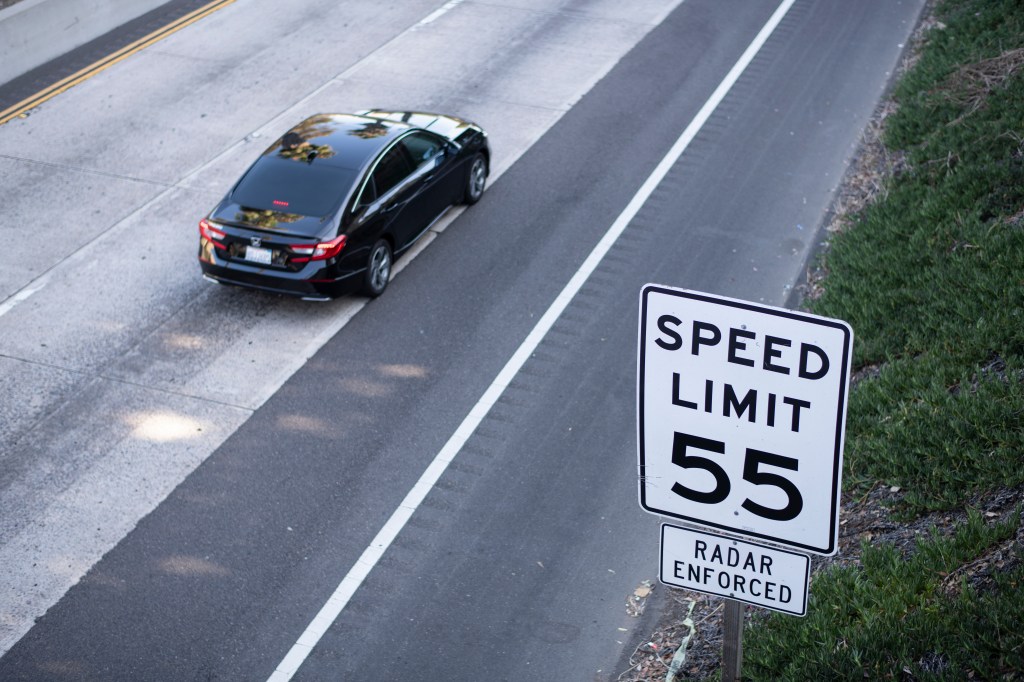
How to Stop Speeding on Your Streets: Tools and Strategies for Safer Communities
September 3, 2025
How Do Speed Cameras Work? A Simple Guide to Automated Enforcement
September 3, 2025
Speed cameras are gaining momentum across the United States as a tool to reduce dangerous driving and improve public safety. But the legality of these systems varies widely—what’s permitted in one state may be restricted or prohibited in another.
This article provides a high-level overview of where speed enforcement cameras are legal, where their use is limited, and how Verra Mobility helps communities navigate evolving legislation and implement compliant, effective programs.
Are Speed Cameras Legal in the U.S.?
Yes, but not everywhere, and not always in the same way. The legality of speed cameras in the United States is governed by a patchwork of state and local laws, meaning:
- Some states explicitly allow speed enforcement cameras
- Others limit their use to certain zones (e.g., school zones or work zones)
- A few states prohibit their use altogether
In many cases, even where statewide programs are not authorized, local jurisdictions may establish their own enforcement programs under home-rule authority or pilot initiatives.
What Types of Enforcement Are Permitted?
Speed cameras are often permitted in specific safety zones, such as:
- School zones
- Construction or work zones
- Designated high-injury networks or Vision Zero corridors
Some states authorize full-scale programs across municipalities, while others only permit narrowly scoped enforcement tied to state-approved legislation or pilot programs.
Examples of States That Permit Speed Camera Programs
- Maryland – Allows automated speed enforcement in school and work zones. Montgomery County’s program is a widely studied model.
- Illinois – Permits speed cameras in work zones and certain areas in Chicago.
- Oregon – Authorizes fixed and mobile speed cameras in high-crash corridors and school zones.
- Arizona, Pennsylvania, Virginia, Washington D.C. – Also allow for some form of automated speed enforcement, often with defined limits.
Laws governing automated speed enforcement evolve frequently, with changes often occurring at both the state and local levels. Verra Mobility closely monitors these developments from each state’s Department of Transportation and has deep experience navigating the legal landscape across jurisdictions. We help communities determine whether speed camera programs are permitted in their area and identify the most effective and compliant options based on current legislation. Whether through statewide authorization, local ordinances, or pilot initiatives, our team ensures clients can move forward with confidence and clarity.
States That Prohibit or Restrict Speed Cameras
Some states have passed laws that prohibit automated speed enforcement, citing privacy concerns or enforcement philosophy. Examples (as of more recent legislative cycles) include:
- Texas
- New Jersey
- New Hampshire
- Wisconsin
- Mississippi
In these states, citations cannot legally be issued using automated speed cameras. However, in some cases, the technology may still be used in a non-enforcement capacity—for example, to collect aggregate speed data, identify areas with chronic speeding, or inform traffic safety strategies. When permitted, these deployments can help law enforcement better target high-risk areas and may serve as a visual deterrent to reduce dangerous driving behavior. That said, the legality of non-enforcement use also varies, and Verra Mobility works with each jurisdiction to ensure all deployments align with local laws.
Who Has Authority to Enforce?
In some states, the state legislature must pass enabling legislation for speed cameras to be used. In others, local municipalities or counties have independent authority to adopt their own programs.
Understanding whether enforcement is governed top-down or bottom-up is key to successful implementation.
Common Legal Requirements for Speed Camera Programs
Even in jurisdictions where speed cameras are allowed, programs must often comply with specific legal requirements, such as:
- Warning signage prior to camera zones
- Officer review of all violations before citations are issued
- Calibration and certification of equipment
- Annual reporting on program effectiveness and revenue
- Sunset provisions or pilot program expiration dates
Verra Mobility works closely with clients to ensure compliance with all applicable legal frameworks.
Navigating the Legal Landscape with Confidence
Because speed camera laws are complex and frequently evolving, Verra Mobility provides expert guidance in:
- Legal and legislative research
- Stakeholder engagement with policymakers and law enforcement
- Program design that aligns with local and state requirements
- Public education to increase transparency and acceptance
Whether you’re in a state with a well-established program or exploring new legislation, Verra Mobility helps you move forward with clarity and confidence.
Learn More
Looking for related insights on speed camera enforcement systems?
Want to Know If Speed Cameras Are Legal in Your State?
Verra Mobility has helped more than 300 communities implement compliant, effective automated enforcement programs. If you’re unsure about your state’s laws or considering a local pilot, our policy experts can help.
Contact us to find out if speed enforcement is permitted in your jurisdiction.

